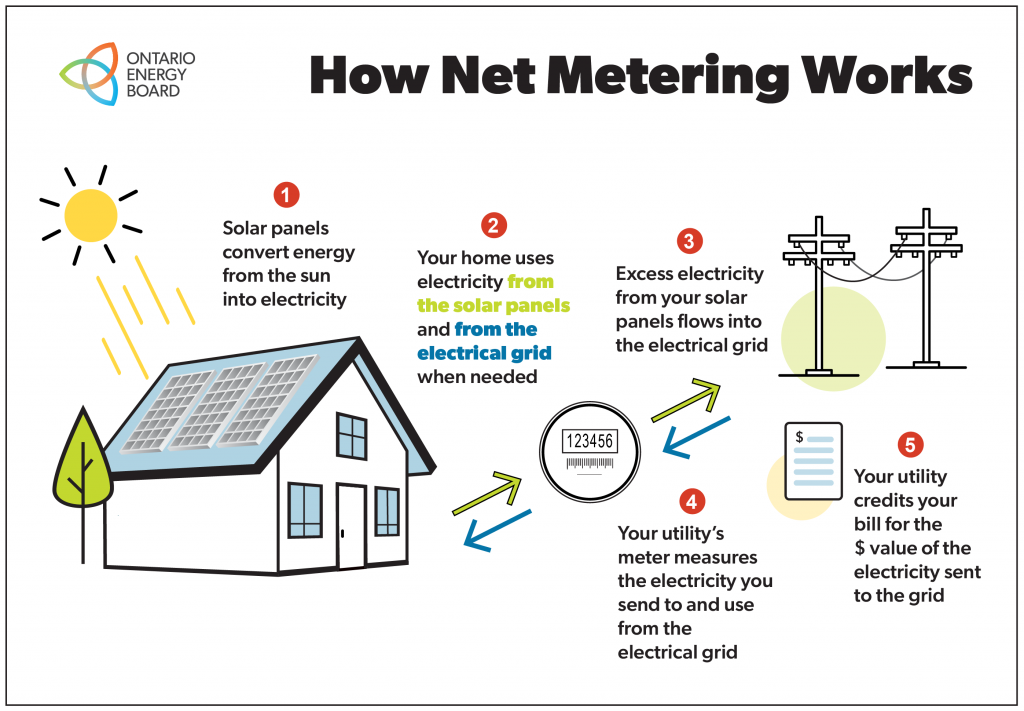
Explore the sections below to learn about the benefits of solar energy, how to assess the potential of your rooftop and more.
Homes and buildings are the largest sources of greenhouse gas (GHG) emissions in Toronto.
Following City Council’s declaration of a climate emergency in 2019, the City’s TransformTO Net Zero Strategy was adopted with a stronger emissions reduction target for Toronto: net zero emissions by 2040.
To avoid the worst impacts of climate change, 75 per cent of our energy must be from renewable energy/low carbon sources by the year 2050. Solar will play a significant role.
In addition to being a source of clean energy, solar can be paired with battery storage to ensure electricity is available to you when it’s needed most, including during power outages.
Solar allows you to generate a portion of your own electricity, which will reduce your electricity costs and your dependency on the grid’s power. Depending on the size of your solar system, roof space, and shading, you can easily offset 30 to 90 per cent of your electricity costs.
Electricity rates increase by five to seven per cent annually. Going solar can make your monthly expenses more predictable, protecting you from rising electricity costs.
Solar installations combined with battery storage provide increased protection during grid outages, as the system stores excess energy for later use.
Demand for homes equipped with solar panels continues to grow and could result in higher property/resale value.
Electricity generated by solar panels is green, renewable, and reduces greenhouse gas (GHG) emissions. It also reduces electricity demand and our impact on the grid as we continue to move towards electrification.
Installing a renewable energy source can help to meet your business’ environmental, social, and governance (ESG) commitments.
The social and financial benefits of going solar and improving your environmental image can provide a competitive advantage.
Solar cells, also called photovoltaic (PV) cells, convert the sun’s energy into electricity. Solar cells are electrically connected to each other to form a solar panel. The internal circuitry in the panel converts the sun’s rays into direct current (DC) electricity. The inverter then converts the direct current (DC) to alternating current (AC), the most commonly used form of electricity in homes and businesses today.
Grid-tied solar systems in Toronto participate in the Net Metering program offered by Toronto Hydro.
When your solar panels produce more electricity than you need, the Net Metering Program allows you to send excess electricity to the grid in exchange for a credit on your monthly bill. Excess generation credits can be carried forward for a consecutive 12-month period to offset future electricity costs.
Most buildings will produce excess electricity in the summer months and use more electricity from the grid in the winter. You can draw from the extra credits generated in the summer months, at night and during the winter months when you need them.

The SolarTO Map can help you assess the solar potential of your property by calculating the system size, cost estimate, payback period, projected savings, and carbon emissions reduction.
If the SolarTO Map is unable to calculate the potential of your property, please email us at SolarTO@toronto.ca so we can assist you.
The SolarTO Map can help you assess the solar potential of your property by calculating the system size, cost estimate, payback period, projected savings, and carbon emissions reduction. Please note that the map cannot assess the solar potential of parking lots and energy storage opportunities.
If you are interested in assessing solar potential for a portfolio of multiple buildings, please send the addresses by email to SolarTO@toronto.ca and City staff will provide the following:
If you are interested in investigating solar carport opportunities, you can request an assessment by sending your address by email to SolarTO@toronto.ca and City staff will provide the following:
Large commercial and industrial facilities that pay a large portion of their energy bills to global adjustment charges can benefit from energy storage. If you are a Class A building participating in the Industrial Conservation Initiative (ICI), and interested in assessing energy storage, please email SolarTO@toronto.ca with your address and City staff will provide: